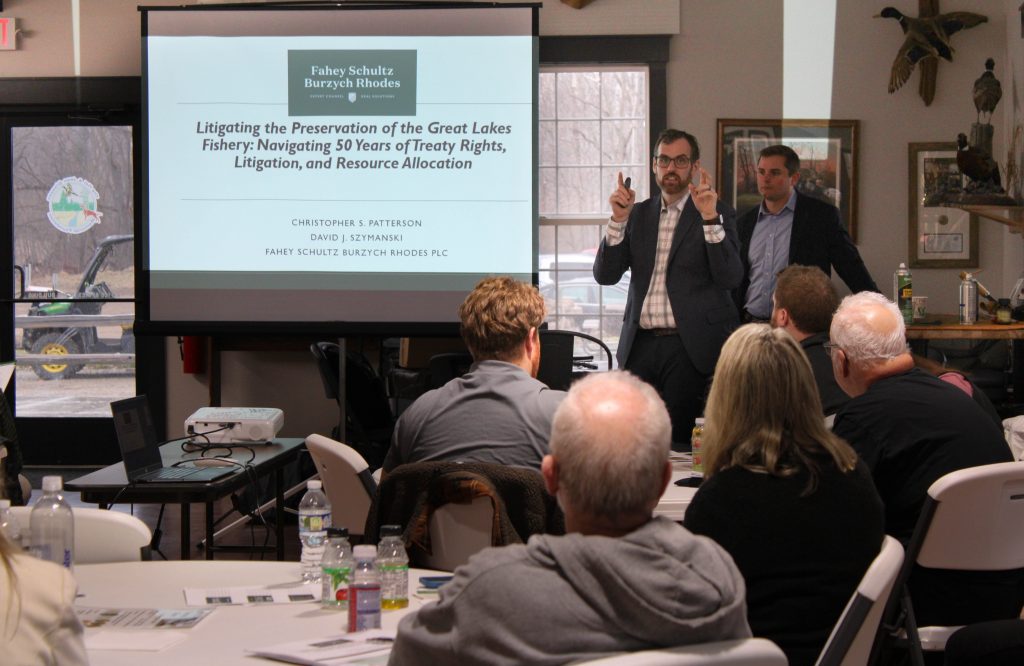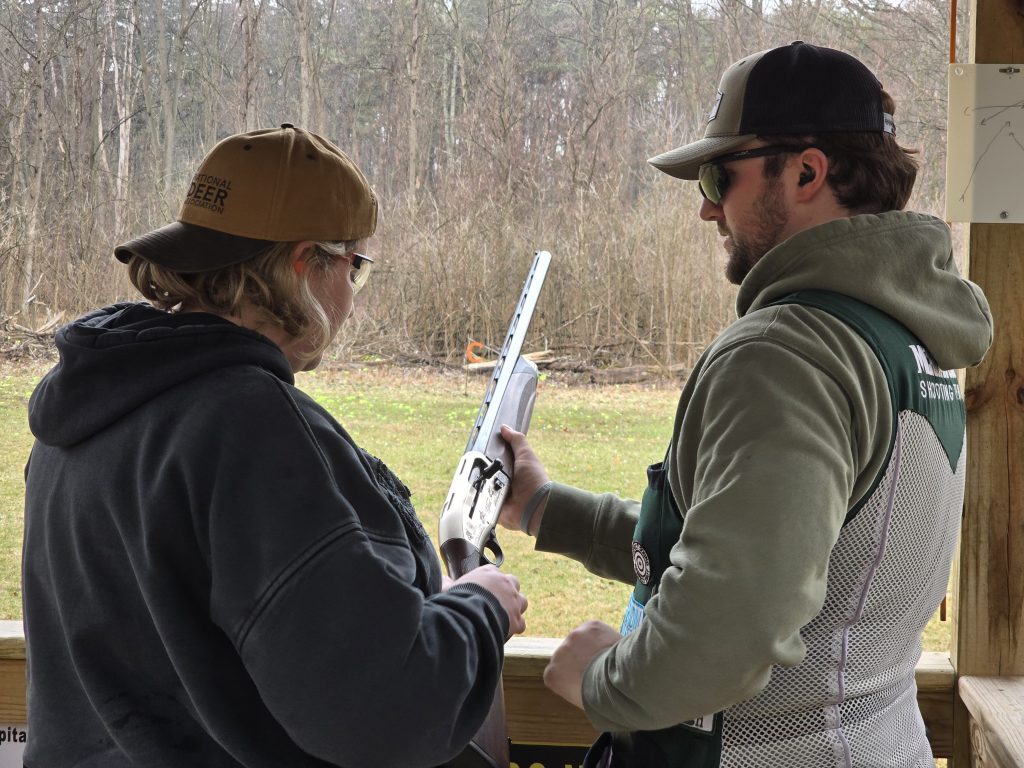Michigan Hosts Conservation Legal Educational Seminar
EDGEFIELD, S.C. — NWTF partnered with the Center for Conservation Excellence and Michigan United Conservation Club (MUCC) to host a conservation legal education seminar in Lansing, Michigan. The seminar, organized by Shelby LaButte, NWTF assistant director of the Center for Conservation Excellence, provided a comprehensive legal update on the Second Amendment, conservation policy and Michigan’s Great Lakes Fisheries.
“Michigan is one of the few states that does not mandate Continuing Legal Education (CLE) for its attorneys and judges,” LaButte said. “Nonetheless, we wanted to offer this seminar, focused on conservation law, to both professionals and students in the field.”
The event brought together a diverse group of attendees, including attorneys specializing in natural resources and Second Amendment law, staff from the Michigan Department of Natural Resources, legislators and students studying wildlife biology and conservation law.
Carol Frampton, NWTF chief of legal services, started the event by providing a rich history of the long running debate over the Second Amendment, which grants the citizens of the United States “a well regulated Militia, being necessary to the security of a free State, [and] the right of the people to keep and bear Arms.”
Frampton talked through examples of historical challenges to the Second Amendment dating back to the late 1800s, all the way up to recent challenges with New York State Rifle & Pistol Association, Inc. v. Bruen case. This case created a new constitutional test for deciding Second Amendment challenges, now referred to as the Bruen test. This test says that when a law affects Second Amendment rights, the court must look to the history and tradition of firearm regulation in the United States to determine whether the law is constitutional.
This led to the introduction of speaker Steve Dulan, licensed attorney and adjunct professor. Dulan spoke about some of his current cases related to the Bruen test and then discussed current battles with the state’s red flag laws. Also known as Extreme Risk Protection Orders (ERPOs), red flag laws allow individuals or law enforcement to petition a court to temporarily remove firearms from someone deemed a risk to themselves or others, raising Second Amendment concerns.
Shifting gears from second amendment challenges to local state conservation policy, Justin Tomei, policy and government affairs manager for MUCC, gave an overview of the history of MUCC and explained the group’s objectives. Founded in 1937, MUCC is a grassroots advocate for healthy wildlife, vibrant ecosystems and the protection of Michigan’s hunting, fishing and trapping heritage.
Tomei went on the explain the group’s success with legislation like Prop G, that amended Michigan's Natural Resources and Environmental Protection Act (NREPA) and granted the state’s Natural Resources Commission exclusive authority to regulate the taking of game species. NRC is also required to use scientific research in making management decisions. MUCC also celebrates plenty of other legislative successes.
Last year, Tomei was among many who were advocating for the passing of the Mentored Hunt Expansion in Michigan, which allows youth with cognitive impairments and special needs who can’t take a written hunting exam to continue to hunt with a mentor. Tomei explained that although this legislation only impacts a small number of state residents, the people it helps are deeply grateful. He told the group about a mother who came up to him in tears because her child wouldn’t have the opportunity to hunt anymore. This kind of legislation was life changing for her and her child.

The group took a brief intermission before the seminar welcomed Christopher Patterson and David Szymanski from the law firm of Fahey Schultz Burzych Rhodes PLC , to present on litigating the preservation of the Great Lakes and navigating 50 years of treaty rights, litigation and resource allocation. The firm works with The Coalition to Protect Michigan Resources to ensure the Great Lakes, and their fisheries, are conserved and managed fairly to ensure a sustainable fish population for generations to come.
Following all presentations, attendees were able to get outside and target shoot.

“The rain cleared just in time for us to conclude the day with a sporting clays and trap shooting event at the Capital Area Sportsmen's League,” LaButte said. It provided a great educational and interactive experience for all.”
